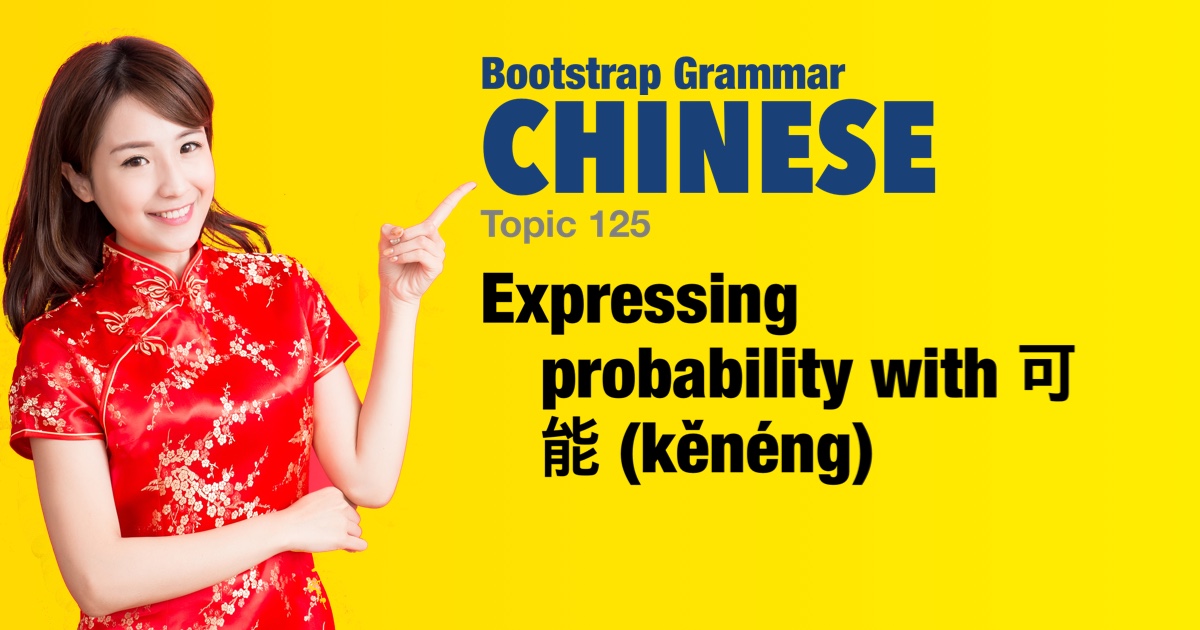Chinese grammar - Expressing probability with 可能 (kěnéng) |
|||
|
|||
The Chinese word 可能 (kěnéng) is used to express probability or possibility. It can be used to indicate that something might happen, or to speculate about what could happen. — It functions similarly to 'might', 'may', or 'could' in English. |
| Examples: | |
|
他可能有时间来帮忙。
tā kěnéng yǒu shíjiān lái bāngmáng. He might have time to help.
|
|
|
明天可能有会议。
míngtiān kěnéng yǒu huìyì. There might be a meeting tomorrow. |
|
|
他可能迟到。
tā kěnéng chídào. He might be late. |
|
|
他们可能在家。
tāmen kěnéng zài jiā. They might be at home. |
|
|
你的书可能在桌子上。
nǐ de shū kěnéng zài zhuōzi shàng. Your book might be on the table. |
|
|
房间里可能没有人。
fángjiān lǐ kěnéng méi yǒu rén. There might not be anyone in the room. |
|
|
他的父母可能不同意。
tā de fùmǔ kěnéng bù tóngyì. His parents might not agree.
|
|
|
这个电影可能很好看。
zhè ge diànyǐng kěnéng hěn hǎokàn. This movie might be very good.
|
|
|
他们可能已经走了。
tāmen kěnéng yǐjīng zǒu le. They might have already left. |
|
|
车里可能没有水。
chē lǐ kěnéng méi yǒu shuǐ. There might not be water in the car. |
|
|
她可能在学习。
tā kěnéng zài xuéxí. She might be studying. |
|
|
他可能知道答案。
tā kěnéng zhīdào dá'àn. He might know the answer. |
|
|
我们可能没有足够的时间。
wǒmen kěnéng méi yǒu zúgòu de shíjiān. We might not have enough time.
|
|
|
这个问题可能没有答案。
zhè ge wèntí kěnéng méi yǒu dá'àn. This question might not have an answer. |
|
|
她可能已经吃了。
tā kěnéng yǐjīng chī le. She might have already eaten. |
|
|
那里可能没有人。
nàlǐ kěnéng méi yǒu rén. There might not be anyone there. |
|
|
米饭里可能有太多的水吗?
mǐfàn lǐ kěnéng yǒu tàiduō de shuǐ ma? Might there be too much water with the rice?
|
|
|
他可能有一个妹妹。
tā kěnéng yǒu yí gè mèimei. He might have a younger sister. |
|
|
他们家里可能没有电。
tāmen jiā lǐ kěnéng méi yǒu diàn. They might not have electricity at home.
|
|
|
他们可能不回来。
tāmen kěnéng bù huílái. They might not come back. |
|
 |
|



